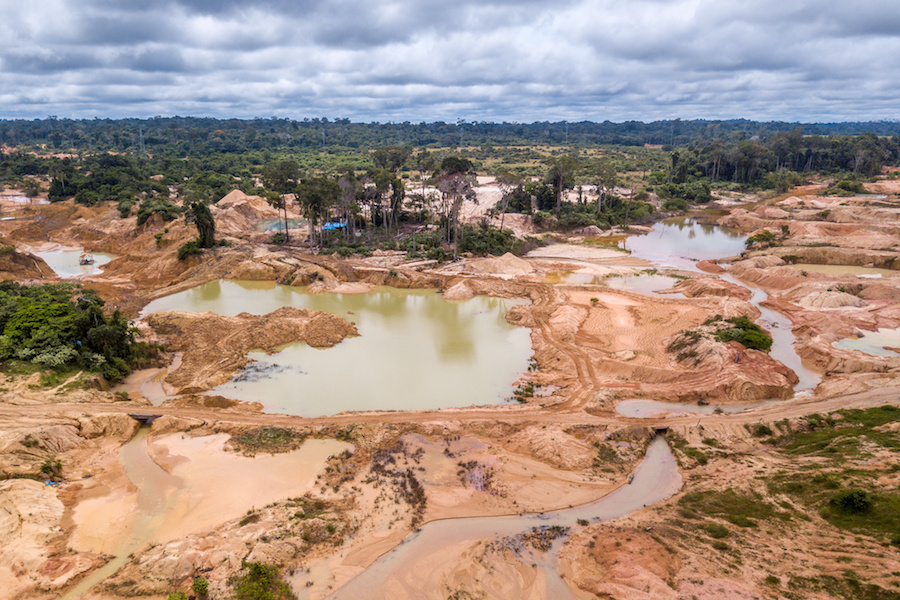Brazil’s miners want Europe to help fight Amazon gold havoc

Brazil’s mining industry is seeking Europe’s help in the fight against illegal gold extraction in the Amazon region by buying only certified metal and punishing transgressors.
Raul Jungmann, who heads Brazilian mining institute Ibram, said he reached out to Frans Timmermans when the executive vice-president for the European Commission visited Brazil last week. Jungmann is also asking for support from Brazil’s Foreign Ministry.
Brazil’s formal mining sector wants importing nations to require and enforce origin control in a move that’s in line with the recent approval of a deal to curb Europe’s role in global deforestation through its supply chains for key commodities. Illegal mining in the Amazon biome contributes to deforestation and disrupts indigenous groups.
“We can’t look to Brazil only,” Jungmann said in an interview. “The importers are part of this chain that destroys the Amazon.”
Instituto Escolhas found that half of Brazilian gold sold between 2015 and 2020 had severe evidence of illegality. In a report, the sustainability organization said foreign buyers could classify Brazil as a high-risk conflict area. Switzerland accounted for 15% of the gold mined in Brazil last year.
The damage caused by illegal and informal mining, known in Brazil as garimpo, has come under the spotlight in recent weeks after President Luiz Inacio Lula da Silva’s government declared a public health emergency for the Yanomami indigenous population in the Amazon, where an illegal gold rush is fueling a surge in land destruction. The Yanomami have been suffering from malnutrition and hunger as wildcat miners invade their territories and contaminate soil and river water.
Jungmann, a former minister of defense, sees illegal mining as a crime that should be fought with the help of the armed forces. Large mining firms are keen to distance themselves from illegal operators to protect their reputations.
“One front is to block wildcat miners’ access to the market, but we can’t give up on repressing the activity,” he said.
One of the goals of the formal mining industry and non-governmental organizations is to create a traceability system to establish a DNA for Brazilian gold.
Efforts include recruiting Brazil’s Central Bank, Federal Police, the Internal Revenue Service and securities regulator CVM. This month, the CVM started investigating Ibram’s complaints against the five largest securities dealers that buy and export gold from Amazon mines.
Critical minerals
Ibram, which represents 90% of mining companies in Brazil, wants Lula’s government to create a national policy to promote critical mineral industries as well as measures to curb dependence on imported fertilizers.
Jungmann said the industry is preparing a proposal to present to Congress and the ministries of mining and industry, including measures to promote investments in mineral research and exports.
“There will be no transition to a low-carbon economy without an increase in the production of strategic minerals such as lithium,” he said.
(By Mariana Durao)
Read more: How wildcat mining is behind the Yanomami crisis in Brazil
{{ commodity.name }}
{{ post.title }}
{{ post.date }}




Comments